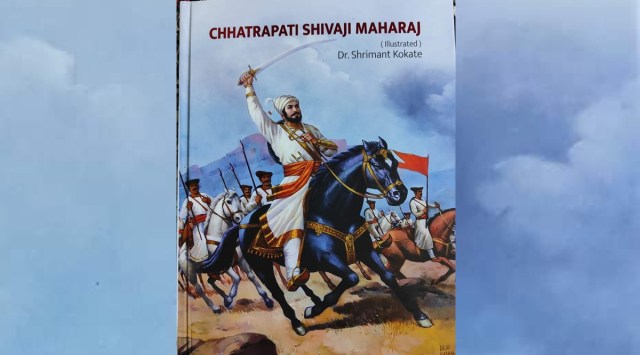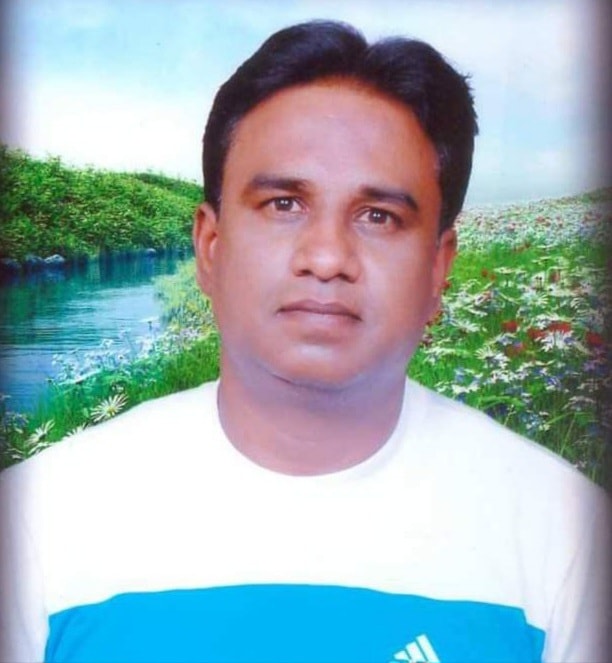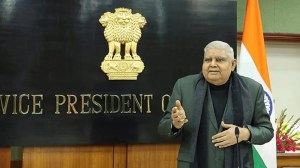‘Book presents authentic picture of Shivaji Maharaj’s life and times’
The book highlights how the Maratha king nurtured the interests of his subjects.
 Kokate's latest book has been translated into English by Dilip Chavan (Express Photo)
Kokate's latest book has been translated into English by Dilip Chavan (Express Photo) Popular Marathi author and historian Shrimant Kokate, whose first book in English, Chhatrapati Shivaji Maharaj (illustrated) was launched recently, said he has made effort to present the Shivaji era correctly before the world, at a time when some authors are distorting history and trying to belittle the grand image of the Maratha king.
“Chhatrapati Shivaji Maharaj is known as a great king, not only in Maharashtra or India, but people across the world adore and respect him. His achievements are a great inspiration to the society, which makes it necessary to present his journey on the basis of facts. I have made sincere efforts to bring forward the authentic history of the great king,” Kokate told The Indian Express after an event in the city on Sunday.
Speaking to The Indian Express, Kokate said, “History has the power to inculcate noble values in society. Shivaji’s real journey will never reach society if history is distorted in stories, novels, films, dramas, TV series. Some even say his stories are imaginative and exaggerated. Some historians and writers by distorting history have hurt the image of the great king. I have presented the true image of Chhatrapati Shivaji Maharaj through my illustrated biography. This is my first book in English,” said Kokate.
Kokate’s latest book has been translated into English by Dilip Chavan. It was released by MP and actor Amol Kolhe, who is famous for his roles as Chhatrapati Shivaji Maharaj and Sambhaji Maharaj in Marathi TV series. Kokate has written four books on Shivaji, which have been widely read and have received rave reviews. In all, he has written 10 books on various subjects.
Kokate said so far he has written all his books on Shivaji in Marathi. “My content is well-researched, investigated and thoroughly verified. I thought the world should know the greatness of Shivaji Maharaj in a language they understand. I am sure my English version of Shivaji will do well across the world,” he said. The story of Maharaj’s life, said Kokate, should be spread across the world without the boundaries of caste, religion, province, language and country. “During his reign, women were given pride of place, and treated on par with men. Shivajiraje was religious, but not fanatical or superstitious. The book highlights these facets of his reign in detail,” said Kokate.
In a bid to clear the air over the widely held belief that Goddess Tujla Bhavani had gifted him a sword, Kokate said,”The sword was in fact gifted to the Maratha king by the Sawant family of Gowle village, in Mahad taluka of Konkan. Shivajiraje named it as “Bhavani talwar… The sword was not from Bhavani Ma as is believed. It is of Portuguese make… I have tried to bring forward factual information,” he said.
Kokate said,”Shivaji Maharaj was an intellectual, with a scientific bent of mind. He never believed in auspicious time or muhurats. Many of his battles took place on Amavasya nights. He did not believe in heaven, hell, reincarnation… He believed in his own work and did his best to protect his subjects, ensure their welfare and helped them in their distress. I have highlighted Shivaraje’s scientific approach and furnished authentic references.”
The book highlights how the Maratha king nurtured the interests of his subjects. “Care was taken to ensure that the farmer who produces grain and thus feeds people should remain happy. ‘Don’t even touch the farmer’s haystack’, he had ordered. Shivajiraje provided bullocks, grain to drought-affected farmers and given financial aid at zero interest. His humanitarian approach has been highlighted,” he said. The book reveals how there was no room for discriminatory practices during Shivaji rule. “He appointed mavals of all castes and religions to important positions,” he said.
Shivaji was against slavery. When Europe pursued capitalism, Shivajiraje taught them humanism. When men and women were bought and sold as slaves in Europe, the Maratha king banned slavery.”
In the first twenty-five chapters, the author has presented a historical context, as to how his revolutionary parents Jijau and Shahajiraje raised him and inspired nobility in him. “In the second half of the book, I have presented pictorial instances of how Shivajiraje’ s work has influenced the social, cultural, political and educational spheres of India, and how the revolution was an inspiration from this brave warrior’s life,” said Kokate.













